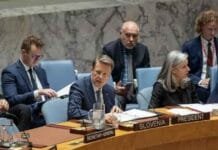The African Union (AU) has announced a significant expansion of its peacekeeping missions in multiple conflict-affected regions across the continent. The move aims to strengthen regional stability, curb insurgencies, and support fragile governments as Africa faces a complex mix of political, ethnic, and security challenges.
🔹 Expansion Details
The AU plans to deploy additional troops, logistical support, and monitoring units in hotspots including Mali, South Sudan, the Sahel region, and parts of the Great Lakes. Peacekeeping objectives include:
Protecting civilians from armed groups and militias
Supporting government forces in stabilizing conflict zones
Facilitating humanitarian aid delivery and access
AU Chairperson Moussa Faki Mahamat emphasized, “Our commitment is to peace, security, and the protection of civilians. Expansion of peacekeeping operations is crucial to achieve sustainable stability.”
🔹 Strategic Coordination
AU forces will work in collaboration with United Nations missions, regional bodies like ECOWAS, and local authorities to maximize effectiveness. Integrated operations will focus on intelligence sharing, rapid response units, and community engagement programs to prevent local conflicts from escalating.
Peace and security analysts highlight that coordination with local stakeholders is key to ensuring that operations are both effective and welcomed by communities.
🔹 Addressing Root Causes
Beyond military deployments, the AU is addressing political and socio-economic drivers of conflict, including:
Governance gaps and weak institutions
Ethnic and communal tensions
Resource disputes and economic inequality
By combining security operations with developmental initiatives, the AU hopes to create long-term peace solutions, reducing reliance solely on armed intervention.
🔹 Political and Regional Implications
The expansion sends a strong signal to both internal and external actors. AU missions aim to deter extremist organizations, discourage foreign interference, and reinforce the legitimacy of African-led solutions to regional crises.
Political analyst Grace Ndlovu noted, “African leadership in peacekeeping is essential. It demonstrates self-reliance and strengthens continental political cohesion.”
🔹 Humanitarian Coordination
The AU’s expanded missions will closely coordinate with humanitarian organizations such as UNICEF, the Red Cross, and WFP, ensuring that displaced populations receive aid while providing security for relief convoys.
AU spokesperson Fatoumata Binta remarked, “Peacekeeping is not only about guns and soldiers; it is about protecting life, ensuring access to aid, and building trust in governance structures.”
🔹 Challenges Ahead
Despite the positive outlook, AU missions face logistical, financial, and operational challenges:
Funding constraints due to fluctuating member contributions
Difficult terrain and infrastructure limitations
Balancing neutrality while engaging with multiple armed factions
Experts suggest that sustainable funding, robust training, and international support without compromising sovereignty are critical to mission success.
🔹 Future Outlook
The African Union plans to increase troop numbers gradually over the next two years, integrating more African-led strategies and intelligence capabilities. Analysts predict that successful missions could stabilize key regions, reduce refugee flows, and enhance Africa’s role in global peace initiatives.
Political commentator Samuel Oba noted, “Africa must lead its own security solutions. The expanded AU missions will serve as a model for regional collaboration and strategic intervention.”
🔹 Conclusion
With the expansion of peacekeeping missions, the African Union is taking decisive steps to address both immediate threats and underlying causes of conflict. By combining military, humanitarian, and political strategies, the AU aims to secure a safer and more stable future for the continent, reinforcing the importance of regional solutions to complex challenges.
















